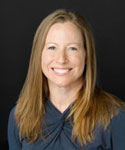 At Orthopaedics and Rheumatology of the North Shore, in Skokie, Ill., Erin L. Arnold, MD, partner, says time theft has not been an issue. She believes there are multiple reasons for this, beginning with hand selecting employees.
At Orthopaedics and Rheumatology of the North Shore, in Skokie, Ill., Erin L. Arnold, MD, partner, says time theft has not been an issue. She believes there are multiple reasons for this, beginning with hand selecting employees.
“When hiring a physical therapist, for example, that individual not only has an interview with me, but they are also evaluated by the office administrator and meet with another physical therapist and that front desk scheduler,” she says. “By engaging current staff to help hire other staff, everyone is invested in the employee.”
Along these lines, “We make a great effort to ensure that staff feel as if they are contributing to how the entire practice environment works,” says Dr. Arnold, whose practice has two rheumatologists and two orthopedic surgeons. “If we are implementing a new procedure or policy, we will engage staff and get their buy-in by being transparent about the changes and reasons for them. Then, we follow up with them regarding how the implementation is going.”
For example, starting on Jan. 1, all patients were required to keep a credit card on file. “Staff were engaged in the roll out, and there was an open line of communication to voice how the process was going and to strategize [about] how we would approach patients who were reluctant to do so,” Dr. Arnold says.
As a result, the new program has been a great success, with no outstanding patient responsible balances as of June 1. When possible, the office administrator, rather than the physician, conveys new initiatives so staff members feel less threatened and are more inclined to give feedback.
Further, “We’ve tried to be considerate about what we ask staff to do and aim to understand their capabilities, while being direct about expectations. For example, the front desk person doesn’t just do front desk work, she also answers phones and does other projects. We try to keep employees busy, [because] they are less likely to look for distractions,” Dr. Arnold says.
From past experiences, Dr. Arnold has found that employees tend to steal time when they are unclear about their job role, if they work in an environment in which they don’t get feedback on their performance or if they don’t feel as if their feedback is actually listened to.
“We do employee reviews, but also ask employees to review us,” Dr. Arnold says. “We ask them about what is working and what isn’t working. We try to create an open dialogue and don’t penalize employees for their views. There is also a comment box where they can provide input anonymously.”
What’s Realistic?
Dr. Arnold doesn’t discourage staff from socializing with one another because it enhances the collaborative environment. Because there are some young mothers on staff, she understands that they will periodically need to field texts and phone calls regarding childcare.
Overtime is rarely used. “If it is reoccurring, we ask employees how they can be more productive [with] their time or if the physician can be more effective with their scheduling,” Dr. Arnold says.
“Staff are invested in the environment and are happy to be here,” she concludes. “We strive to create an environment [in which] employees tend to self-police and would feel bad if they knowingly stole time from the practice. If you don’t create a workplace [in which] people feel engaged, they will start to do things that are not work related, and that’s when they will waste time.”
Karen Appold is a medical writer in Pennsylvania.




